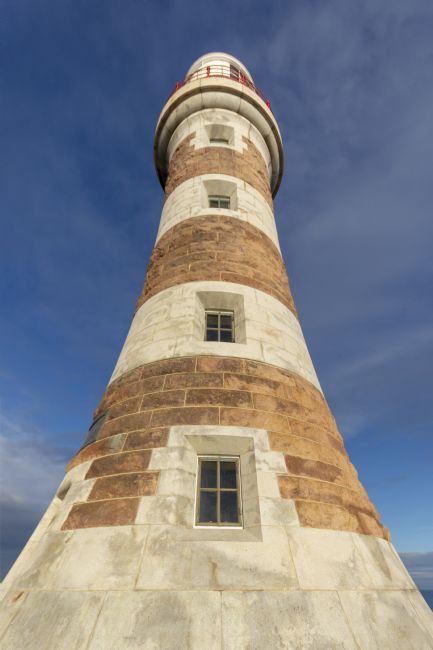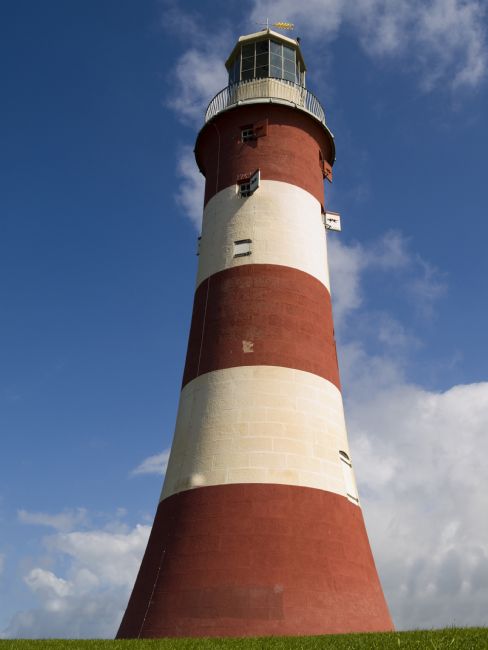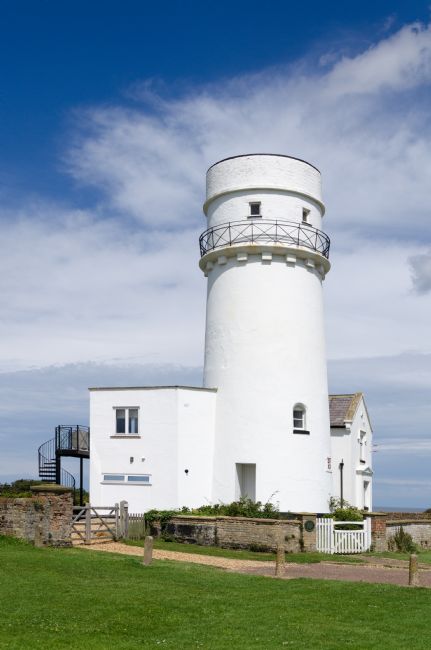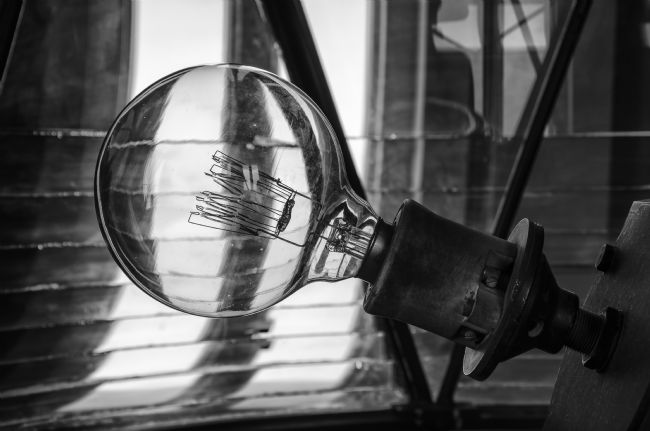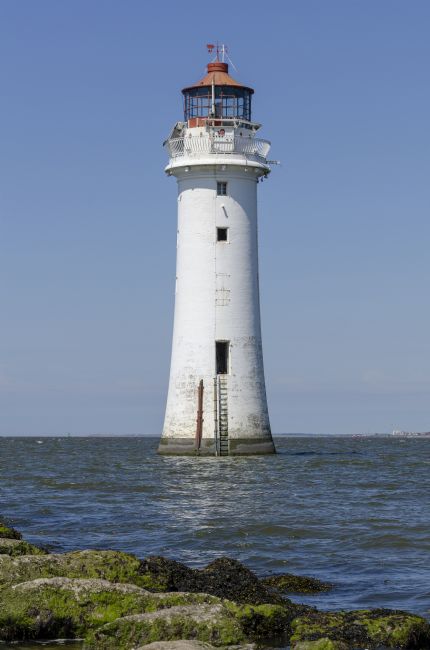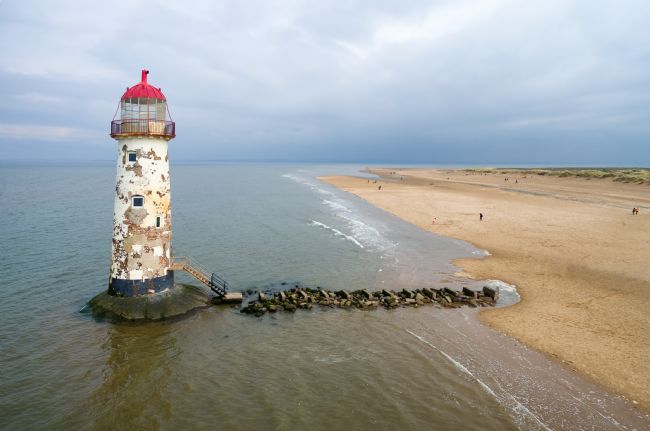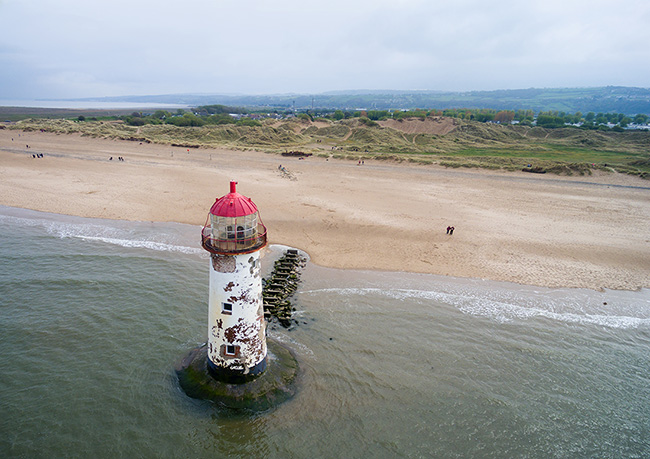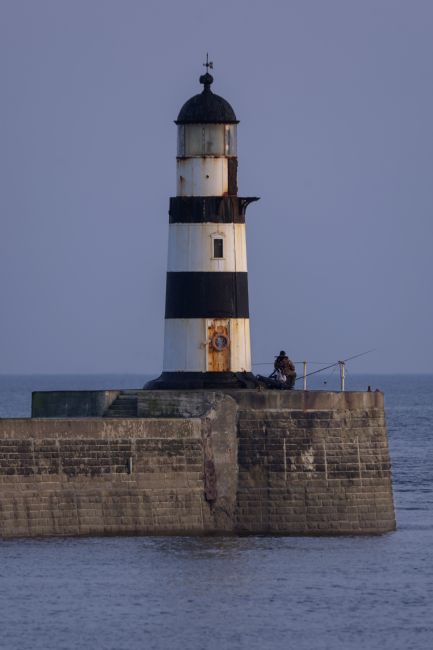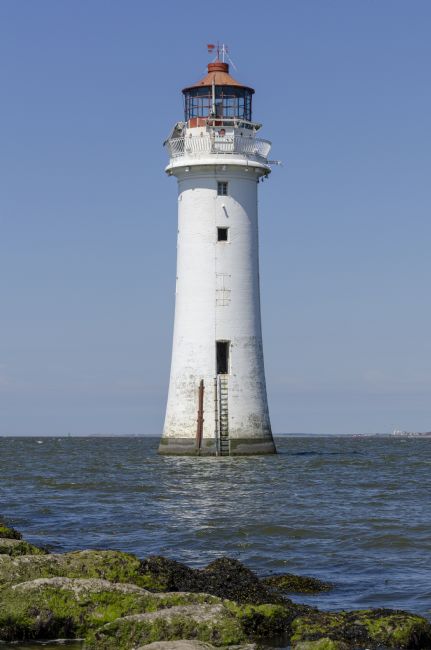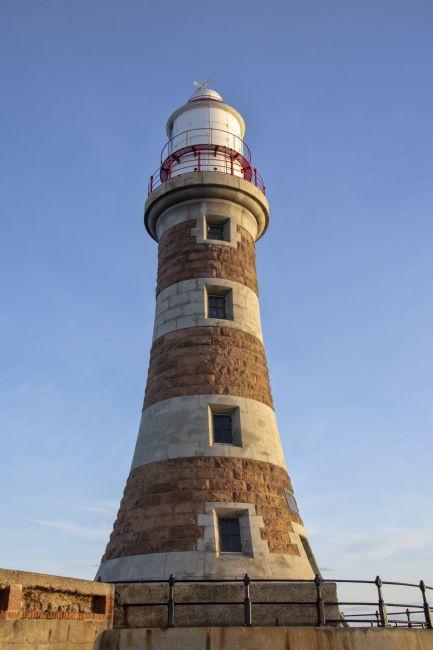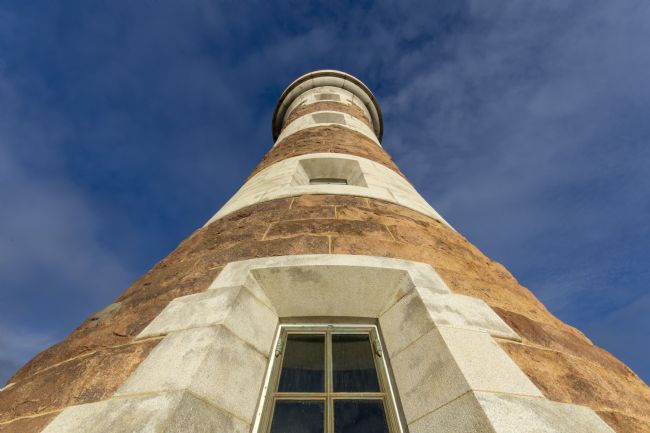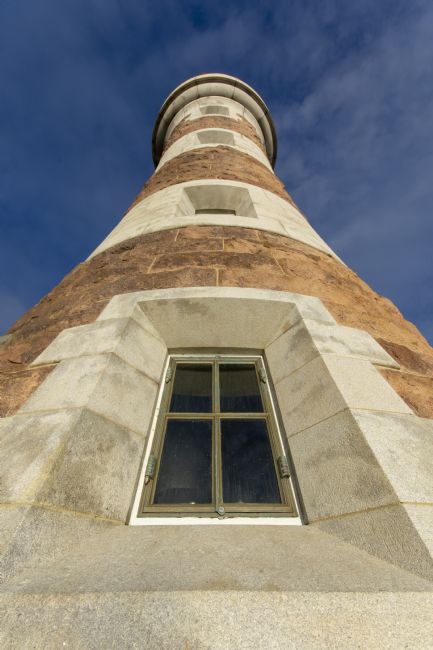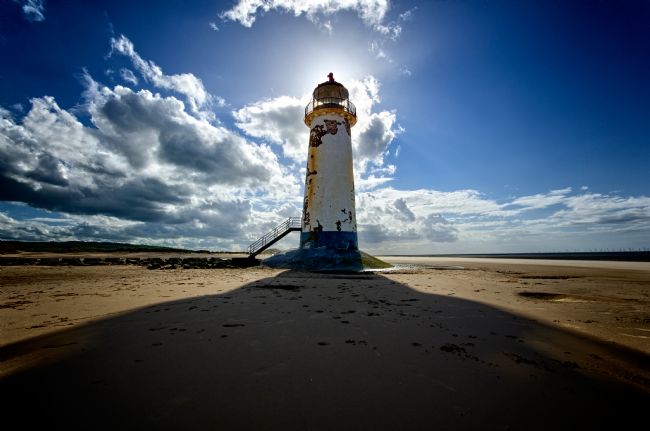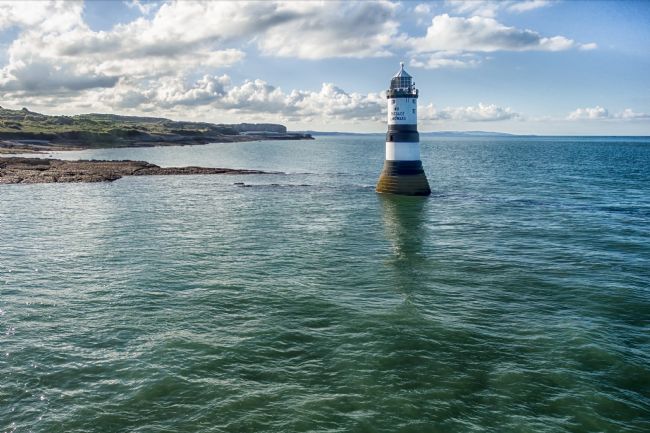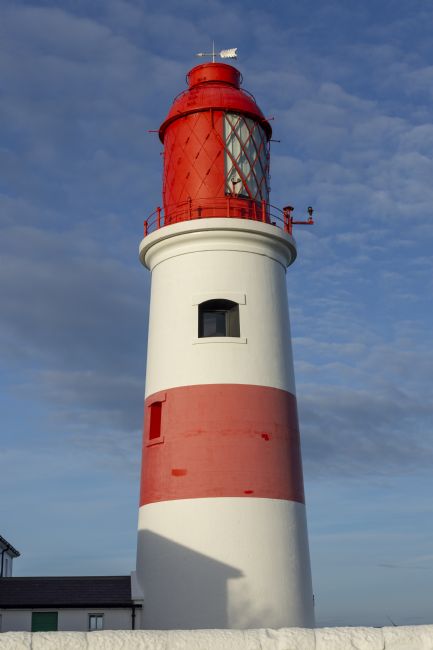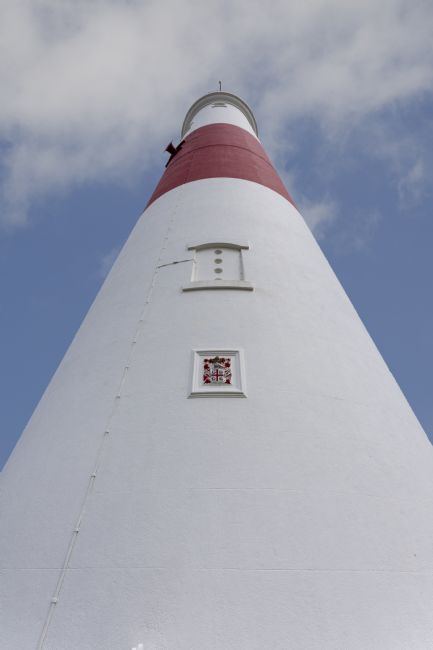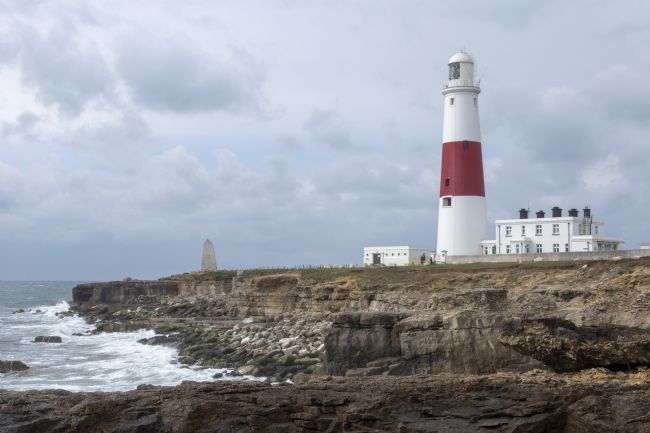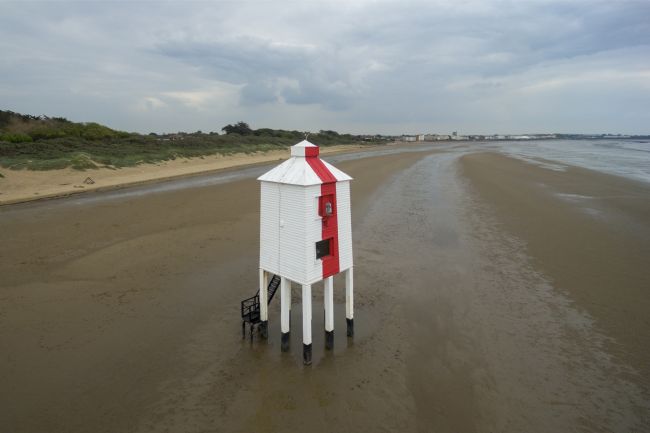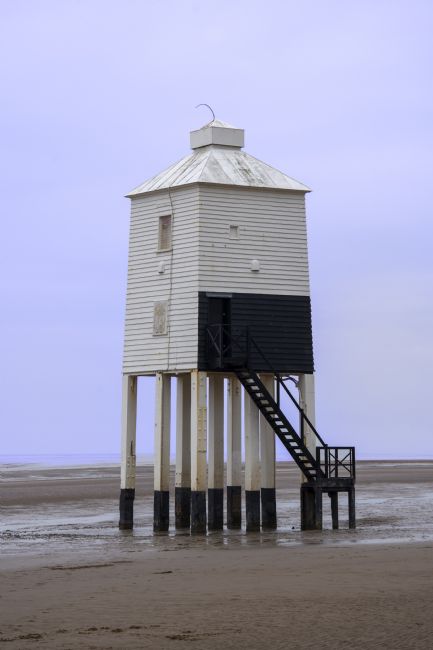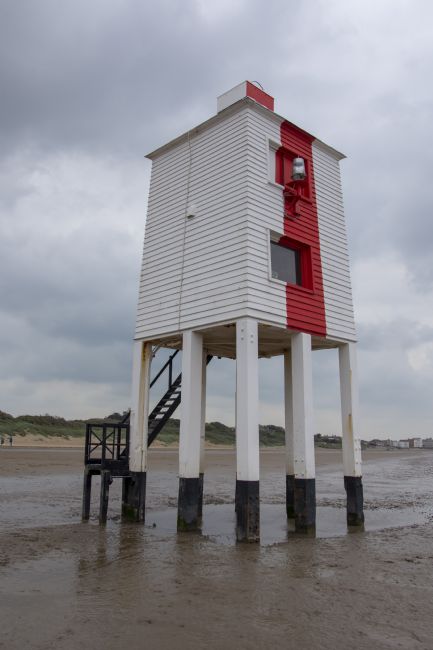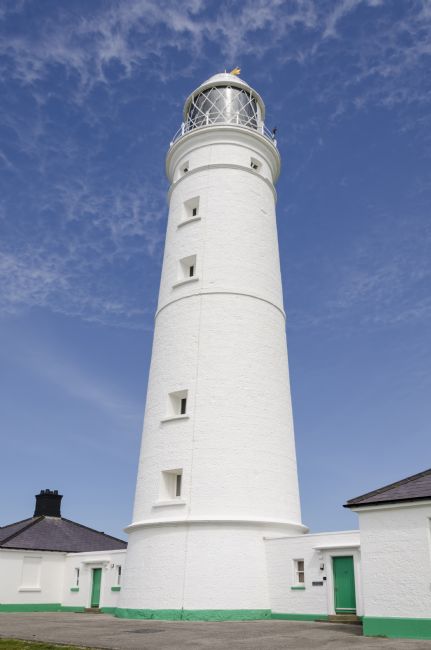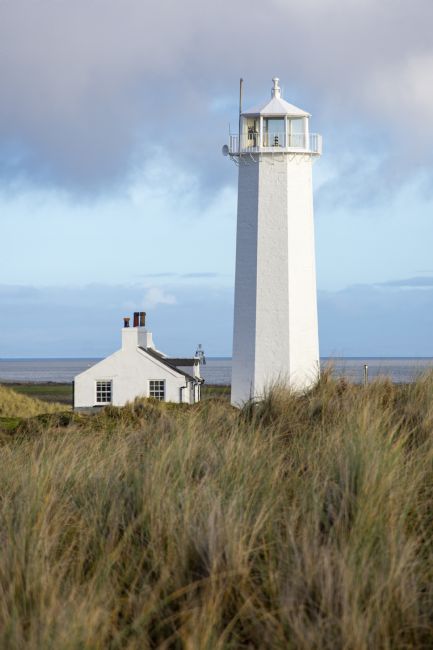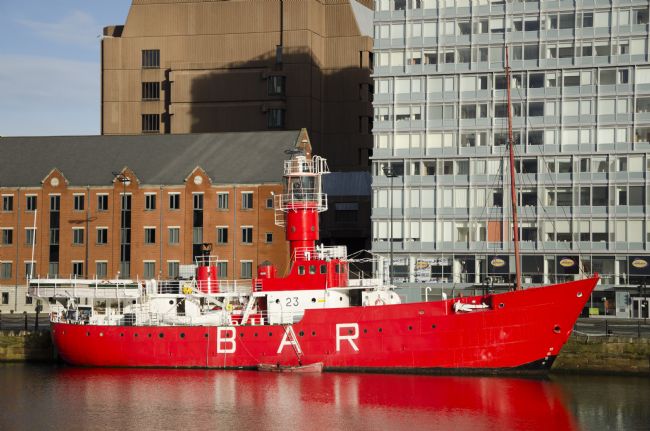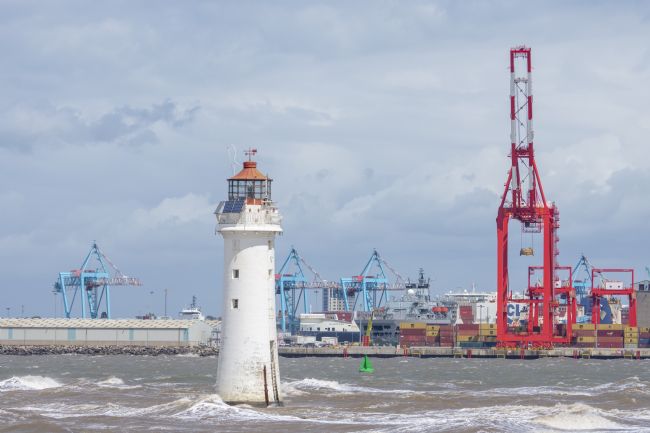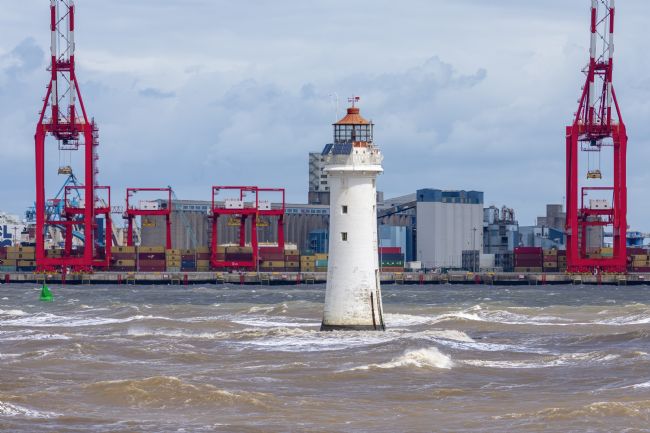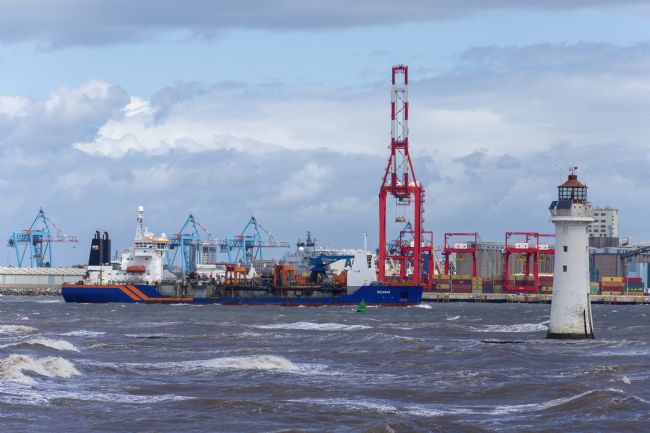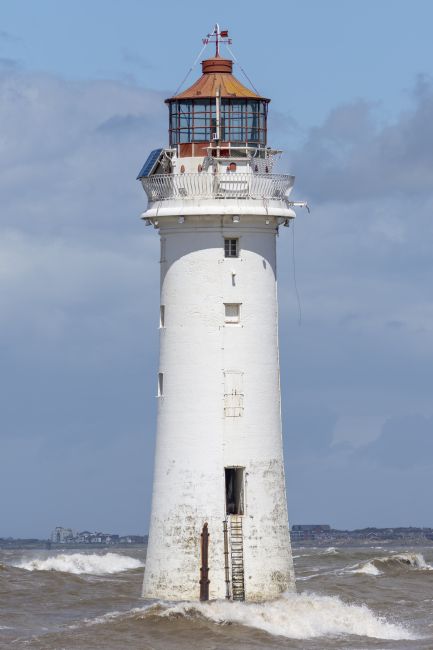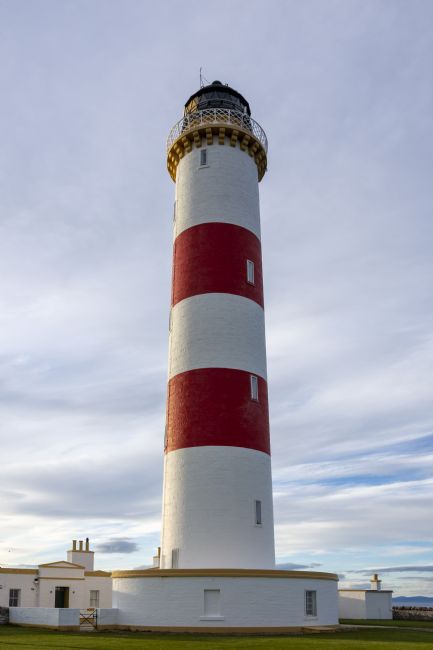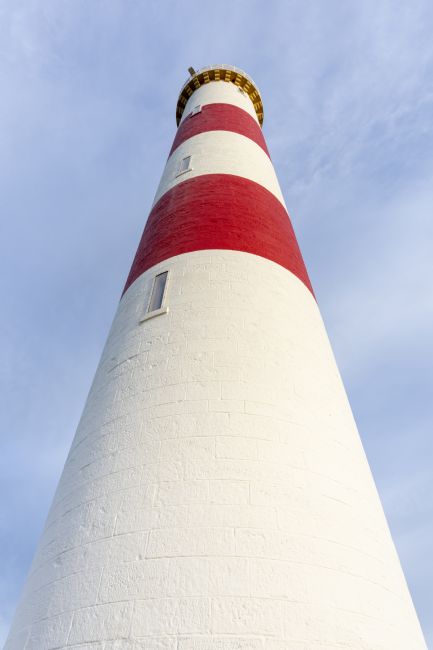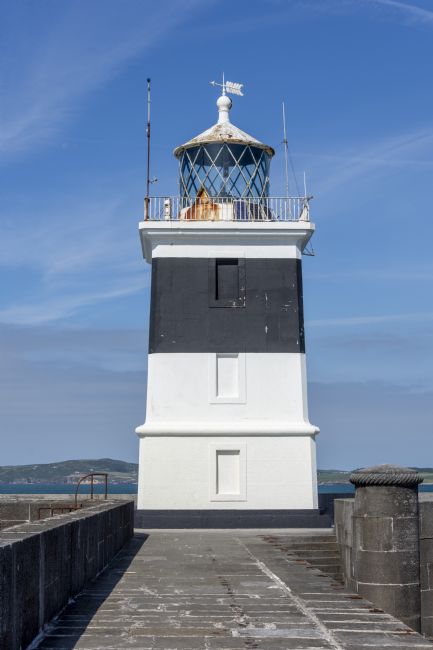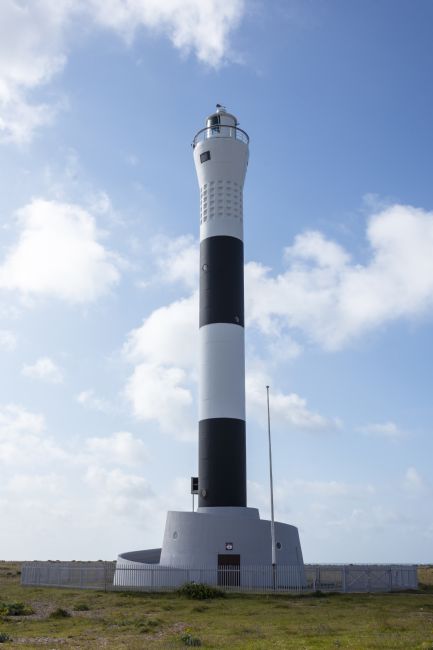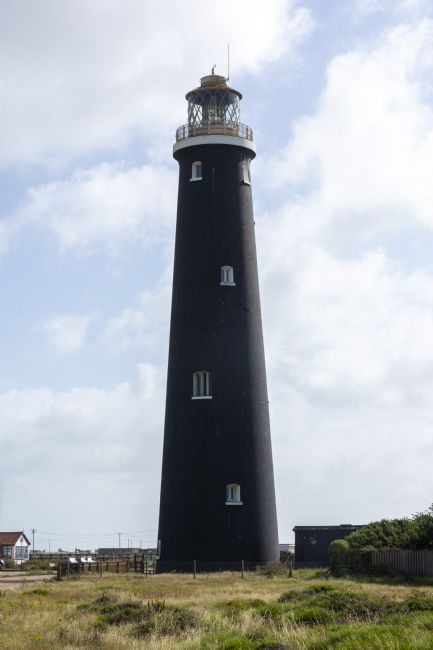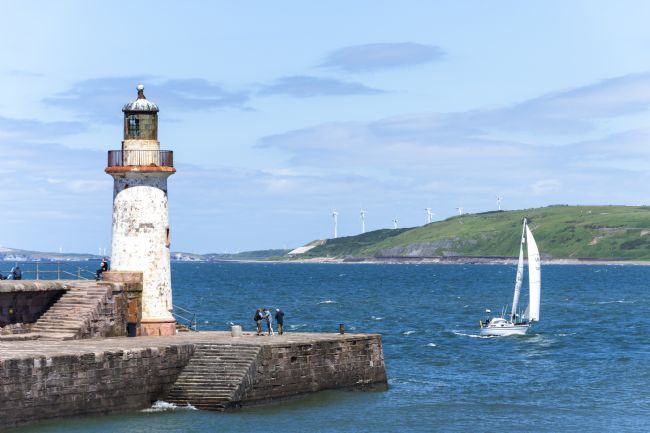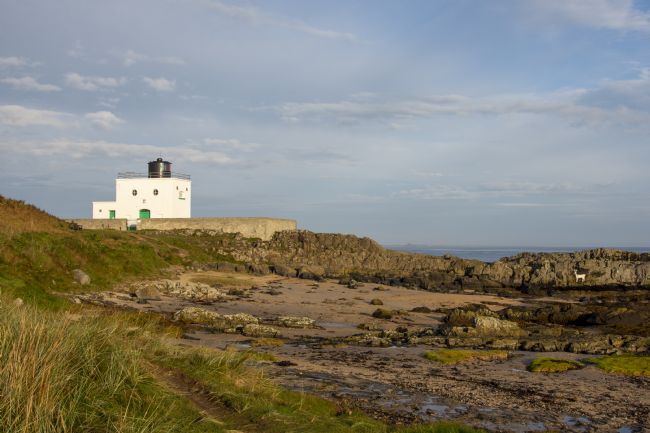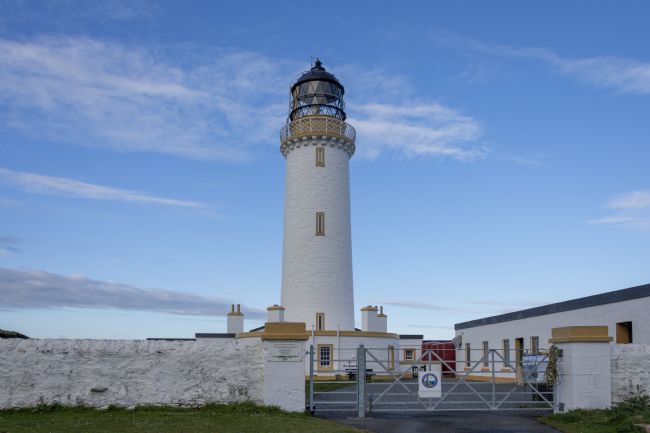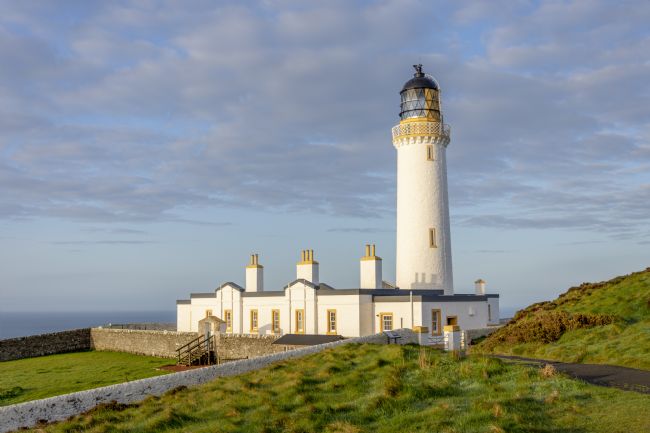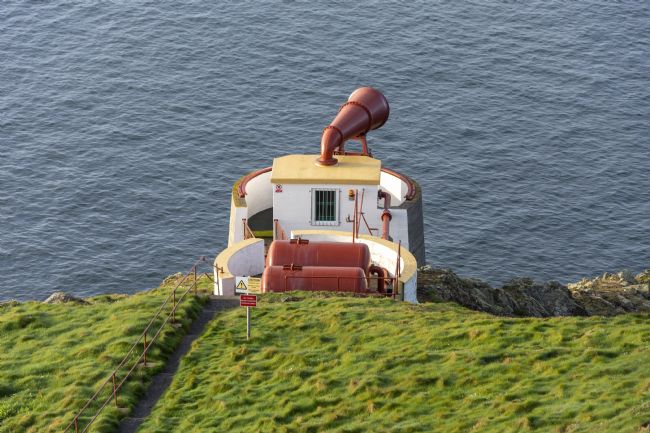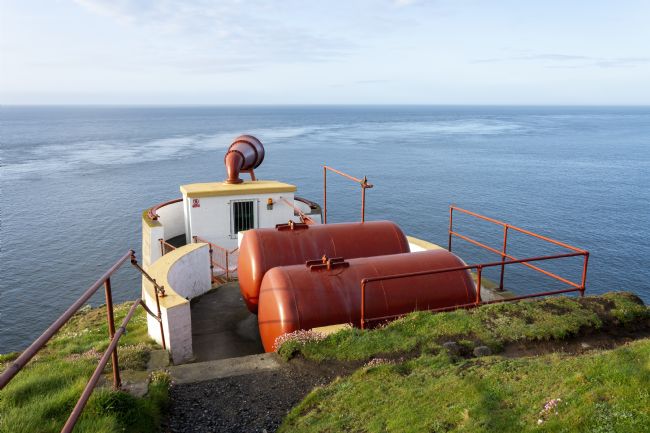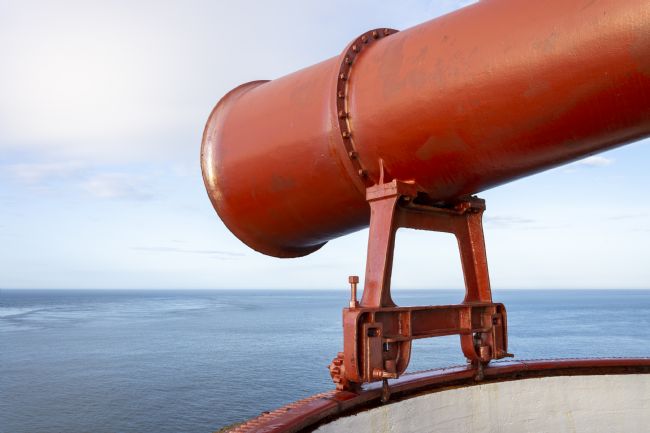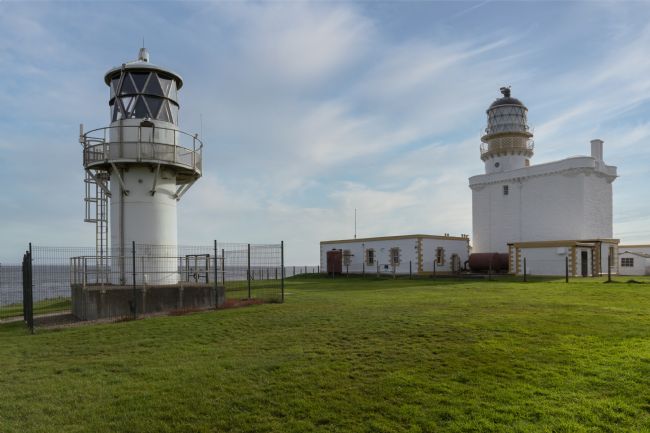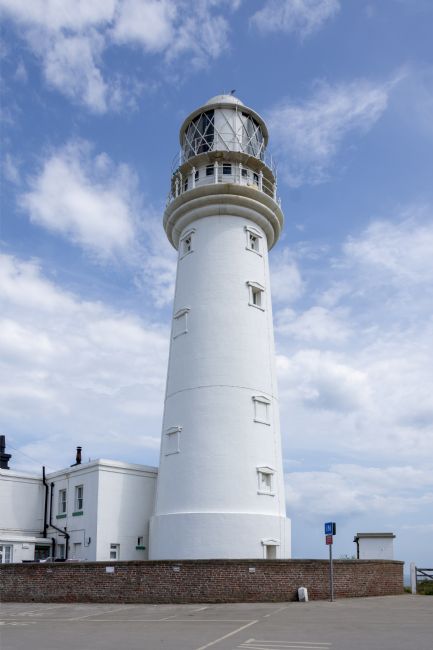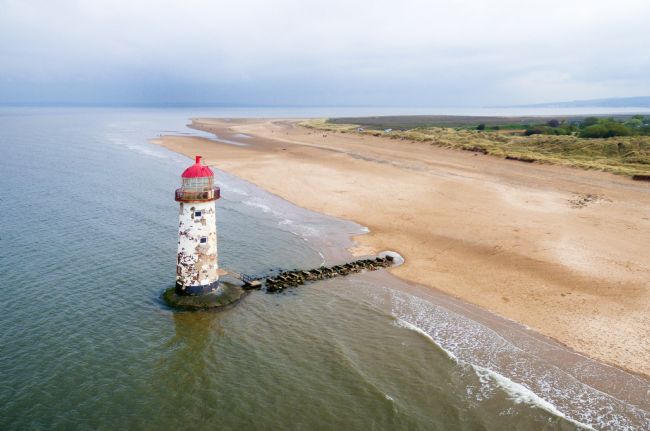Roker lighthouse stands at the end of Roker Pier - a magnificent piece of engineering that between them took 18 years to complete. It guards the entrance to the harbour at Sunderland and the stripes are created by different rocks, not paint as is more traditional.
Smeaton's tower - quite probably the most famous lanmdmark in Plymouth
The old hunstanton lighthouse, oddly enough at Hunstanton in Norfolk, UK was built in 1840 and remained operational until 1922 and is now a holiday let.
One of three large light bulbs at Nash Point lighthouse, Wales, UK
Perch Rock lighthouse, also known as New Brighton lighthouse is in the estuary of the Mersey where it meets Liverpool bay. The lighthouse was first lit in 1830 and remained in use until 1973. No longer in active service it is well preserved and has been re-painted.
An aerial image of Talacre beach in Flintshire, Wales and the now disused Talacre (more properly known as Point of Ayr) lighthouse that overlooks the Irish sea. Built in 1776 and falling into disuse in 1884 it remains a popular place to visit and gets cut off from the land at each high tide.
This image taken from my drone - I am CAA licensed for commercial operation, copy of PfCO certificate available on request.
An aerial image of Talacre beach in Flintshire, Wales and the now disused Talacre (more properly known as Point of Ayr) lighthouse that overlooks the Irish sea. Built in 1776 and falling into disuse in 1884 it remains a popular place to visit and gets cut off from the land at each high tide. This image taken from my drone - I am CAA licensed for commercial operation, copy of PfCO certificate available on request.
Built in 1905 Seaham lighthouse is a 10m metal structure that marks the Seaham northern breakwater. It is no longer possible for the public to walk the pier following the removal of handrails in the 1960s but it is used as a private fishing club.
Perch Rock lighthouse, also known as New Brighton lighthouse is in the estuary of the Mersey where it meets Liverpool bay. The lighthouse was first lit in 1830 and remained in use until 1973. No longer in active service it is well preserved and has been re-painted.
Roker lighthouse stands at the end of Roker Pier - a magnificent piece of engineering that between them took 18 years to complete. It guards the entrance to the harbour at Sunderland and the stripes are created by different rocks, not paint as is more traditional.
Roker lighthouse stands at the end of Roker Pier - a magnificent piece of engineering that between them took 18 years to complete. It guards the entrance to the harbour at Sunderland and the stripes are created by different rocks, not paint as is more traditional.
Roker lighthouse stands at the end of Roker Pier - a magnificent piece of engineering that between them took 18 years to complete. It guards the entrance to the harbour at Sunderland and the stripes are created by different rocks, not paint as is more traditional.
Talacre beach is in Flintshire, Wales and overlooks the Irish sea. This lighthouse is properly known as Point of Ayr and was built in 1776 and fell into disuse in 1884.
Trwyn Du Lighthouse is situated on the Welsh coast at Penmon near to Puffin Island. Some 29 metres tall it is, like all offshore (wave washed) lighthouses in the UK now remote controlled.
This image taken from my drone - I am CAA licensed for commercial operation, copy of PfCO certificate available on request.
Souter lighthouse despite its name is actually on Lizard Point in the village of Marsden and was the first to be designed to use the new fangled AC electricity. Decommissioned in 1988 it is now a popular tourist attraction
Portland Bill is one of many lighthouses on the UK. Its four flash every twenty seconds and distinctive red and white candy stripe has been aiding navigation since 1906 and remains active today. At a height of 135 feet it can been seen for around 25 nautical miles.
Portland Bill is one of many lighthouses on the UK. Its four flash every twenty seconds and distinctive red and white candy stripe has been aiding navigation since 1906 and remains active today. At a height of 135 feet it can been seen for around 25 nautical miles.
This is Low Lighthouse at Burnham-on-Sea in Somerset, UK. Standing on 9 piles, mainly wood but with some metal reinforcements it stands all of 11m (36ft) with the light being at 7m (23ft). It is there to warn seafarers of the dangers of the constantly shifting sands. I am CAA licensed for commercial drone operation.
This is the landward side of Low Lighthouse at Burnham-on-Sea in Somerset, UK. Standing on 9 piles, mainly wood but with some metal reinforcements it stands all of 11m (36ft) with the light being at 7m (23ft). It is there to warn seafarers of the dangers of the constantly shifting sands.
This is the seaward side of Low Lighthouse at Burnham-on-Sea in Somerset, UK. Standing on 9 piles, mainly wood but with some metal reinforcements it stands all of 11m (36ft) with the light being at 7m (23ft). It is there to warn seafarers of the dangers of the constantly shifting sands.
Nash Point lighthouse, Wales.
Still in service the Walney lighthouse we see here was completed in 1804. It remained virtually unchanged until 1903 when it was converted to run on acetylene, then the advent of electric light saw another upgrade in 1953. In 2003 it was automated and thus bought to a close manned lighthouses in the UK.
The Mersey Planet is a lightship, a floating lighthouse. Built in 1959 and of riveted steel construction it was originally positioned at the Mersey Bar - hence the BAR lettering down the side. Mixed fortunes have seen it be used in several marine locations and changes of hand before it was finally bought to Canning Dock in Liverpool where it now sees use as a club / bar and museum.
At the meeting of Liverpool Bay and the River Mersey you find blend of new and old - the lighthouse from 1827 and the towering cranes of the docks.
At the meeting of Liverpool Bay and the River Mersey you find blend of new and old - the lighthouse from 1827 and the towering cranes of the docks.
The suction dredger Lelystad at Liverpool Bay / River Mersey as it passes Perch Rock (New Brighton) lighthouse.
Perch Rock lighthouse (also known as New Brighton lighthouse) stands guard to the entrance of Liverpool Bay and the river Mersey. Decommissioned in 1973 it is now privately owned.
First put into commission in January 1830 Tarbat Ness was designed by Robert Stevenson and at a height of 135 feet is the third tallest in Scotland. Now automated, the keepers' cottages are now privately owned.
First put into commission in January 1830 Tarbat Ness was designed by Robert Stevenson and at a height of 135 feet is the third tallest in Scotland. Now automated, the keepers' cottages are now privately owned.
At around 1.7 miles long Holyhead breakwater is the largest in the UK. Taking over 28 years to complete and making use of shaped 10 ton limestone blocks its construction cost 40 lives. It even had its own railway until the 1980s which was used for maintenance and creates a safe haven of approximately 400 acres. At the end of that breakwater is this lighthouse.
The new lighthouse was officially opened in 1961. This lighthouse, which stands at 43 metres, can be seen from a distance of 21 nautical miles. Like so many others it is now controlled remotely from Trinity House's centre in Harwich. To aid identification not only does it have the normal light, but a series of uplighters make it more easy to spot. The colour is cast into the concrete which in theory at least removes the need for painting in future.
The old lighthouse opened in 1904 and was finally decommissioned in 1960 as it was replaced by one much closer to the shore. It is now open to visitors and offers an amazing view for many miles. Constructed of engineering bricks around a centre core of a sandstone inner.
One of a couple of lighthouses at Whitehaven this is the more traditional looking and is at the end of the harbour wall. A popular place to fish from or simply just walk to it is a welcome sight to sailors as it marks the entrance to the harbour.
Built in 1910 and originally running on acetylene gas this is the most northern land based lighthouse in England. In 1975 it was converted to run on electricity and like the vast majority of UK lighthouses is now controlled remotely from Trinity House's office in Harwich.
This marks the southernmost part of mainland Scotland and like all other lighthouses in the UK is fully automated. The former keepers' cottages are now holiday lets.
This marks the southernmost part of mainland Scotland and like all other lighthouses in the UK is fully automated. The former keepers' cottages are now holiday lets.
This now disused installation is the foghorn at the Mull of Galloway lighthouse. The red tanks were air receivers, pressurised by diesel engines mounted up near the lighthouse. The entire system is now decommissioned.
This now disused installation is the foghorn at the Mull of Galloway lighthouse. The red tanks were air receivers, pressurised by diesel engines mounted up near the lighthouse. The entire system is now decommissioned.
This now disused installation is the foghorn at the Mull of Galloway lighthouse. The horn could be rotated to point in the desired direction using a handle that operated a rack and pinion system. The entire system is now decommissioned.
Kinnaird is unique for making use of an existing structure. In 1787 the tower was simply added to an existing building though subsequently redisgned and upgraded in 1824. The original was decommissioned in 1991, is now part of the lighthouse museum and is open to visitors whilst the newer lighthouse is the tower you see here on the left. This is a composite of my image and a replacement sky.
Standing tall at Flamborough Head this lighthouse like pretty much all others in the UK is now remote controlled and has no permanent staff - just visiting maintenance crews.
An aerial image of Talacre beach in Flintshire, Wales and the now disused Talacre (more properly known as Point of Ayr) lighthouse that overlooks the Irish sea. Built in 1776 and falling into disuse in 1884 it remains a popular place to visit and gets cut off from the land at each high tide.
This image taken from my drone - I am CAA licensed for commercial operation, copy of PfCO certificate available on request.
